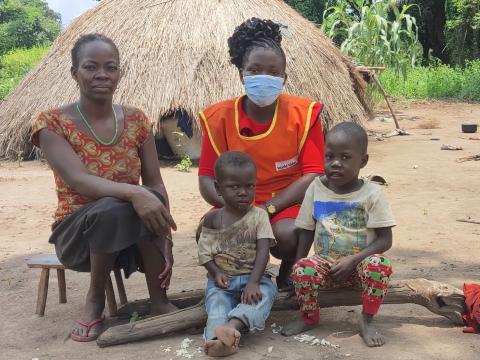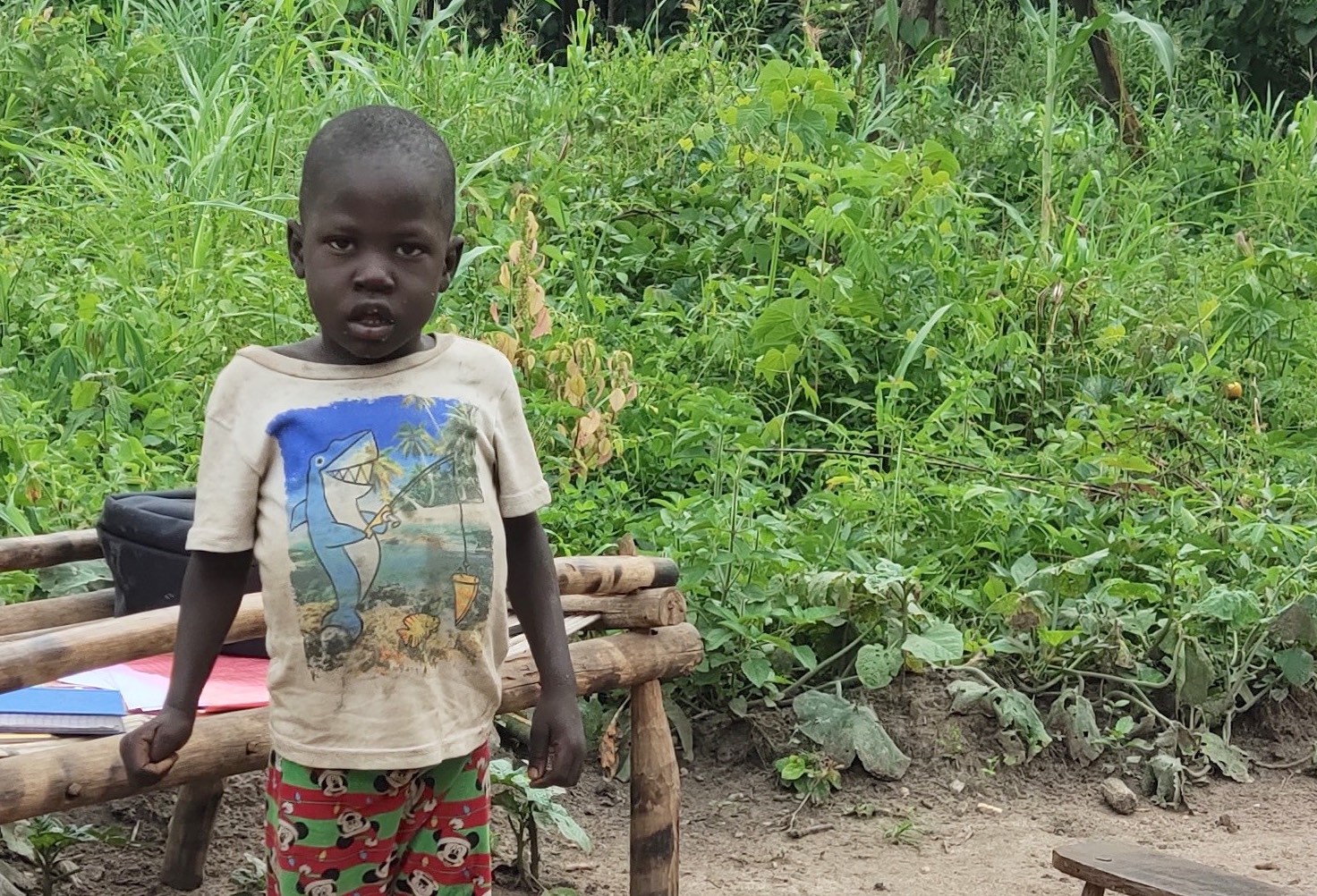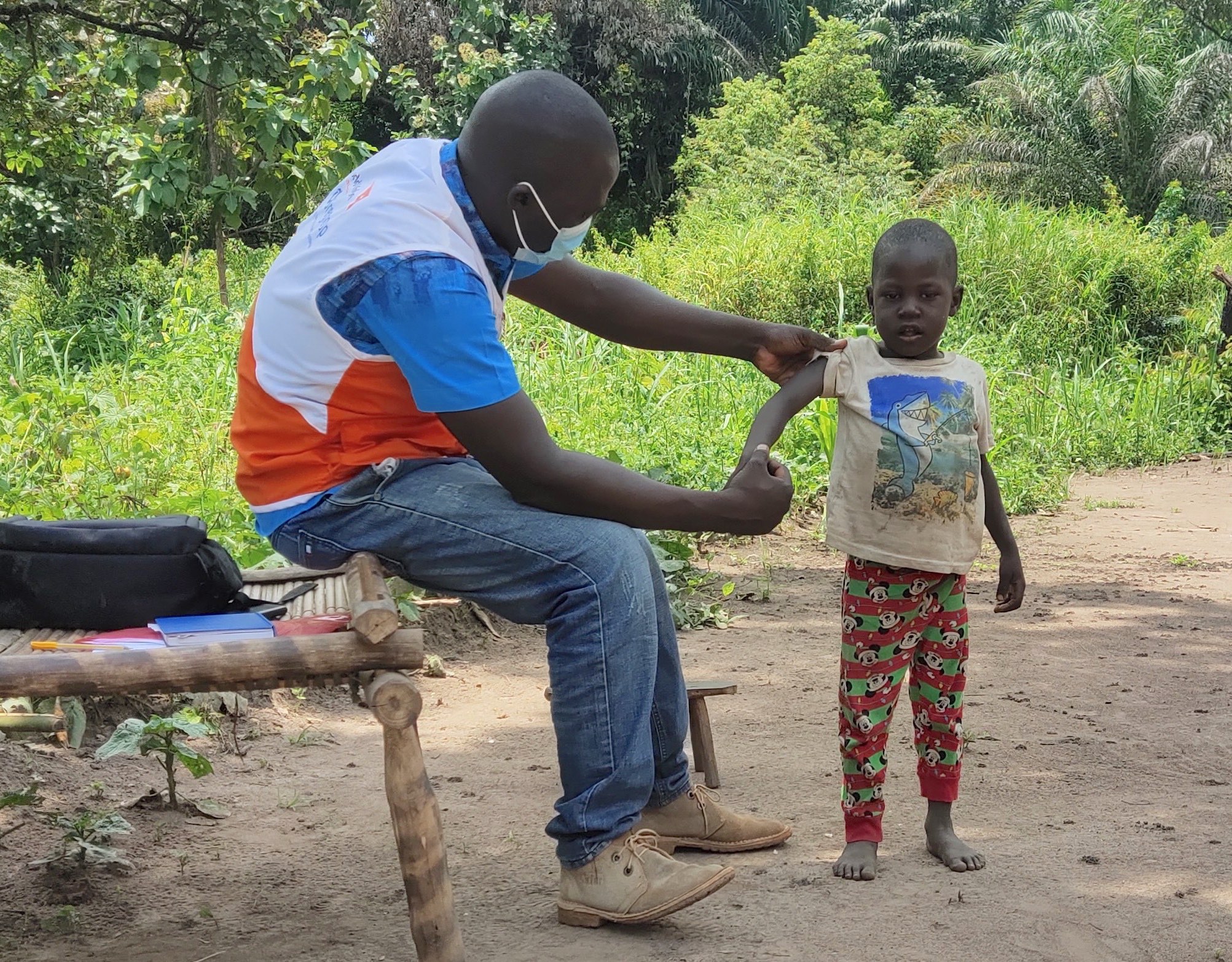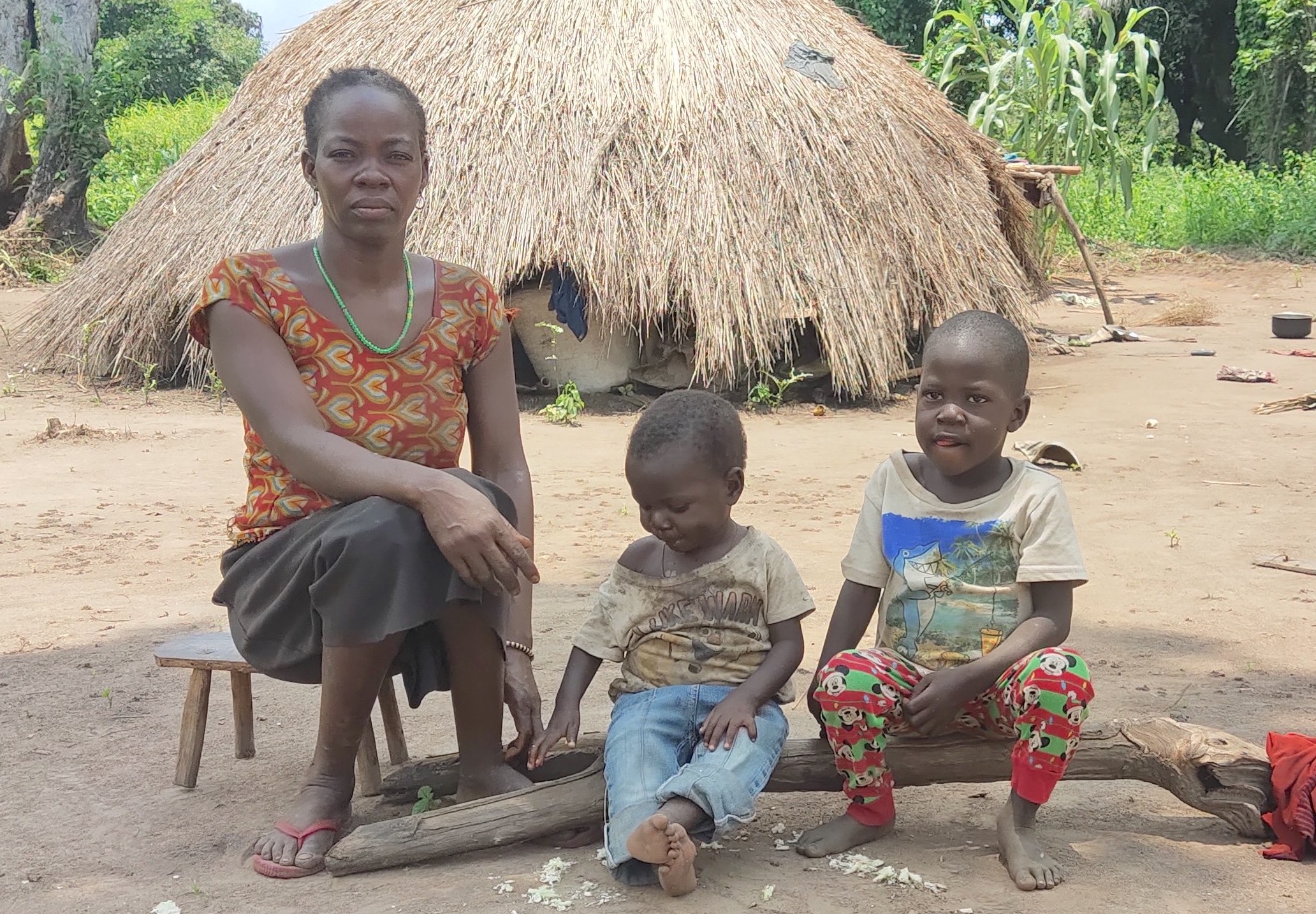Strengthening community-based surveillance of infectious diseases in South Sudan

“My body becomes itchy and I cry with too much pain”, shares Ruben Mborihidie Monday.
Ruben aged five is from Western Equatoria State’s capital Yambio County and lives with his mother Nome Zachariah, 38 and brother Alex, 2.
Ri-Rangu community, where Ruben lives, has only one existing health facility with limited drug supplies and is seven kilometers away from his home.

One morning Ruben woke up and complained to his mother Nome that he felt sick and remained in bed. He had runny nose and his brother Alex told him his eyes were red when he tried to wake him up.
Nome got up early and left her children in bed. “I do my house chores early in the morning, clean the house and prepare breakfast for the children.
When the planting session is over, I use the income from my business to feed the family”, she says.
The mother of two said that World Vision’s health workers visit them from time to time. Nome shares, “Seba Ezikia, the Boma health promoter teaches us about measles, polio, COVID-19, Ebola, yellow fever and how to handle the side effect of immunization.”
As a mother and parent who has attended the awareness sessions from Seba, I knew my son had measles but I wanted to be sure.
When Alex told Nome about Ruben’s condition, she got concerned and admitted that Ruben had high fever and rashes thinking it was just caused by the weather.
She adds, “As a mother and parent who has attended the awareness sessions from Seba, I knew my son had measles but I wanted to be sure.”

With the help of the health promoter, she was referred to Ri-Rangu Primary Health Care Centre and her children were given Vitamin A and some medicines.
“My young brother also had rashes, a runny nose and red eyes just like I did. My mother told us that we should not play under the sun and we slept on separate beds”, Ruben says.
According to Maruf Barnabas, the CORE Group Polio Project Coordinator in Western Equatoria State, at least 13-suspected cases of measles have been reported to the State Ministry of Health and tested positive.
The USAID-supported CORE Group Polio Project implements an integrated community-based surveillance in 24 counties of South Sudan’s Eastern, Western and Central Equatoria.
The project focuses on supporting the communities on five priority diseases namely poliomyelitis, measles, yellow fever, Ebola virus, coronavirus and adverse events following an immunization.

Story and photos by Jemima Tumalu and the CORE Group Polio Project team.